
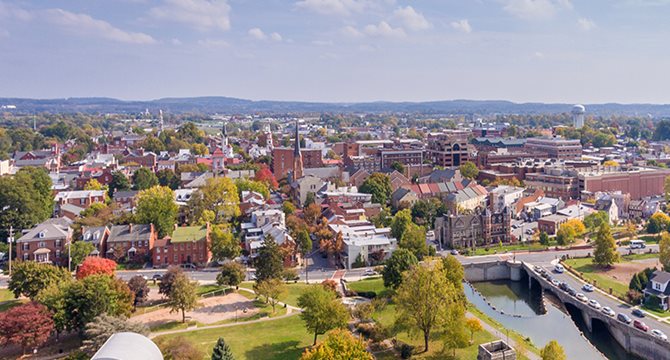
About FCC
Welcome to Frederick Community College!
We transform individuals and communities through learning.
Frederick Community College (FCC) is a public college accredited by the Middle States Commission on Higher Education (MSCHE). FCC is distinguished by its quality and affordability, making it attainable and valuable for local students. Accredited programs, comprehensive instruction, and affordable costs of attendance have made FCC the learning destination for nearly 30,000 graduates since 1957.
In traditional and alternative learning environments, we anticipate and respond to the needs of our local, regional, and global communities. FCC recognizes the different learning needs and preferences of students and offers instruction in flexible learning formats that include day, evening, weekend, online, and hybrid options. In addition, FCC offers current high school students access to college courses through its Open Campus and High School-Based Dual Enrollment programs.
FCC offers 55 associate degree programs and areas of concentration, 39 certificate, and 51 subject areas in continuing education through credit and Continuing Education and Workforce Development (CEWD).
Explore our wide variety of program options designed for career and transfer students, and those studying for job credentials, professional development, and personal enrichment.
Mission Statement
Focused on teaching and learning, Frederick Community College provides affordable, flexible access to lifelong education that responds to the needs of diverse learners and the community.
FCC Accreditation and Self-Study
Values

Learning
Engaging all learners in critical and creative thinking, problem solving, and the lifelong pursuit of knowledge and skills
Innovation
Encouraging creative thinking, technological solutions, and alternative approaches to advance learning and student success 
Diversity
Being culturally conscious and inclusive by embracing the visible and invisible human differences that affect the learning and success of students, faculty, staff, administrators, and members of the community

Excellence
Providing educational experiences and programming that reflect high academic standards, quality instruction, and exemplary student support

Community
Responding to the needs of Frederick County with accessible, affordable education while encouraging engagement, communication, and collaboration within and beyond the College

Integrity
Applying fair and ethical standards in all policies, procedures, and practices
Student Profile
15,243 Total Headcount in Fiscal Year 2024
 9,530 Credit Students Served
9,530 Credit Students Served 6,102Continuing Education & Workforce
6,102Continuing Education & Workforce
Development (CEWD) Student Served 389 Students took both Credit and CEWD
389 Students took both Credit and CEWD
Credit Student Profile
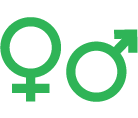 55% Female 44% Male <1% Non-Binary
55% Female 44% Male <1% Non-Binary
 89% From Frederick County
89% From Frederick County
 45% Students of Color 22% Adult Learners (25+)
45% Students of Color 22% Adult Learners (25+)
CEWD Student Profile
 57% Female 41% Male 1% Non-Binary
57% Female 41% Male 1% Non-Binary
 83% From Frederick County
83% From Frederick County
 37% Students of Color 67% Adult Learners (25+)
37% Students of Color 67% Adult Learners (25+)
Additional Credit Student Details
 32 Countries of Origin
32 Countries of Origin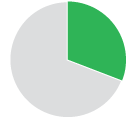 32% First-Generation College Students (Self-Report)
32% First-Generation College Students (Self-Report) 33% of Students Receive Financial Aid
33% of Students Receive Financial Aid 27% of 2023 FCPS Graduates Attended FCC within 1 year of HS Completion
27% of 2023 FCPS Graduates Attended FCC within 1 year of HS Completion
Top 5 Areas of Study
 1 Health Professions
1 Health Professions 2 STEM
2 STEM 3 Business
3 Business 4 General Studies
4 General Studies 5 Visual Arts
5 Visual Arts
Select New Programs
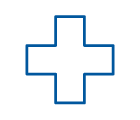 Health Sciences A.S. Degree
Health Sciences A.S. Degree Medical Administrative Specialist Certificate
Medical Administrative Specialist Certificate Cell & Gene Therapy Essentials Certificate
Cell & Gene Therapy Essentials Certificate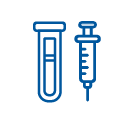 Phlebotomist Certificate
Phlebotomist Certificate Tactical Strength and Conditioning Certificate
Tactical Strength and Conditioning Certificate
Employee Profile
As of Fall 2024:
History
Frederick Community College (FCC) has grown from humble beginnings from its founding in 1957. There 77 students enrolled in the first classes held at FCC in the evening at Frederick High School in 1957. FCC was among the first four of the current 16 community colleges in Maryland. Nine students comprised the first graduating class of the College in 1959.
FCC moved to its second location on North Market Street in downtown Frederick in 1966, expanding programs to include day and evening classes. Meanwhile, continued growth and the need for a larger facility prompted a parallel search for a permanent home. County officials bought the Maude L. Thomas farm on Opossumtown Pike, and FCC employees helped move the College to its current location in 1970.
In 1977-78 academic year, a quarter-century after its founding, the fall enrollment for the college was 1,802 and there were 180 graduates. Over the next decade, the enrollment for the College had grown by 68% to 3,036 students. In Fall 2007, the College entered its fiftieth year and had an enrollment of 5,152 and had nearly 700 graduates.
Today, FCC students of all ages, backgrounds, and aspirations take credit and Continuing Education and Workforce Development (CEWD) courses annually on the main campus, at off-site locations including the Monroe Center, virtually, and even in their high schools for high school-based dual enrolled students. FCC strives to be an academic leader nationwide, while being a catalyst for economic growth. The College prepares students for the marketplace as they acquire immediate job skills, pursue degrees, or enrich their lives through lifelong learning.
In recent years, the College has added a vibrant Student Center, revamped its Library facilities into a modern Learning Commons, expanded its Science, Technology, Engineering, and Math (STEM) laboratories and classrooms, and opened an intimate Studio Theater. Jefferson Hall was remodeled to better serve students as they register, inquire about financial aid, or meet with counselors. The Monroe Center has been renovated to better serve the workforce development needs of our community and is now collocated with Frederick County Workforce Services.
Frederick County Maryland
For additional historical information and data, please visit the FCC Office of Planning, Assessment and Institutional Research.
Frederick Community College is accredited by the Middle States Commission on Higher Education, 1007 North Orange Street - 4th Floor, MB #166, Wilmington, DE 19801. The college completed its last decennial institutional self study in 2016 and its reaccreditation was reaffirmed by the Middle States Commission in June 2016. The Statement of Accreditation Status can be found
here. For more information contact: 301.846.2442.